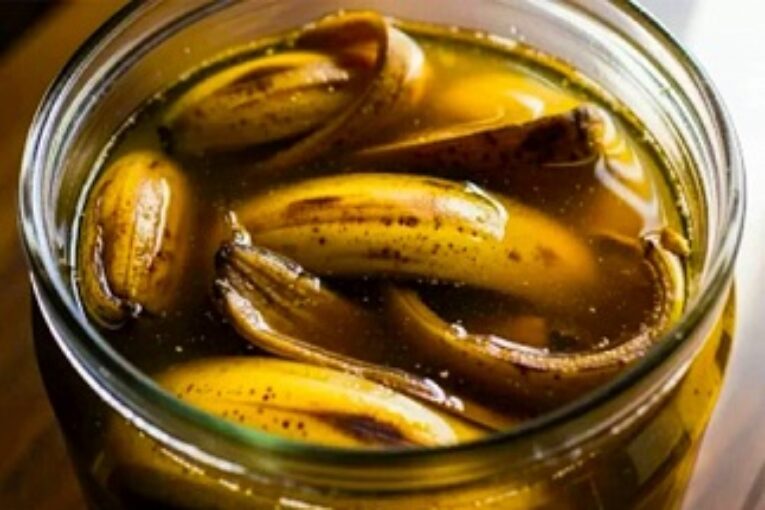
Banana peels and vinegar might sound like an unlikely pair, but together they could become your garden’s new best friends. This simple, natural mixture is gaining fans for its surprising ability to boost plant health without breaking the bank.
If you’re curious about sustainable gardening or just want a low-cost way to enrich your soil, this recipe might be exactly what you need.
How banana peels and vinegar benefit your garden
Banana peels are rich in essential nutrients like potassium, phosphorus, and magnesium, all crucial for healthy plant growth. These minerals help stimulate flowering, fruit production, and stronger root systems.
Vinegar adds another layer of benefit by helping to break down the banana peels faster. This speeds up the release of nutrients into the soil, giving your plants quicker access to what they need.
Additionally, vinegar’s acidic nature can help lower the pH balance in your soil, which is great for plants like azaleas, hydrangeas, and fruit trees that thrive in slightly acidic environments.
Making this nutrient-packed liquid fertilizer is easy and doesn’t require any fancy ingredients.
Start by collecting a few banana peels and placing them in a clean container. Cover the peels completely with white or apple cider vinegar. Make sure the peels are fully submerged to avoid mold.
Let the mixture sit and steep for at least 48 hours. During this time, the vinegar aids in breaking down the peels, releasing their nutrients into the liquid.
Before using, dilute the liquid with an equal part of water. This dilution is vital since undiluted vinegar can be too strong and potentially harm your soil and plants.
Once diluted, you can apply this fertilizer to your plants roughly once a week, especially those needing a nutrient boost in pots, small garden beds, or urban vegetable patches.
Tips for using the mixture safely and effectively
One key thing to remember is never to apply undiluted vinegar directly to your plants. It can cause leaf burn and soil damage.
Test the diluted fertilizer on a single plant first. This will help you observe how your plant responds before applying it broadly.
It’s best suited for plants that like some acidity in the soil. If your garden soil naturally tends toward neutral or alkaline, proceed with caution.
If you maintain a compost pile, you might find that simply adding banana peels directly into the compost works just as well, eliminating the need for vinegar altogether.




